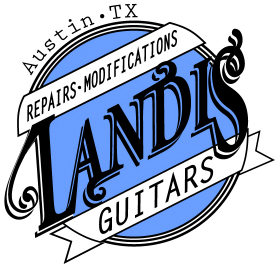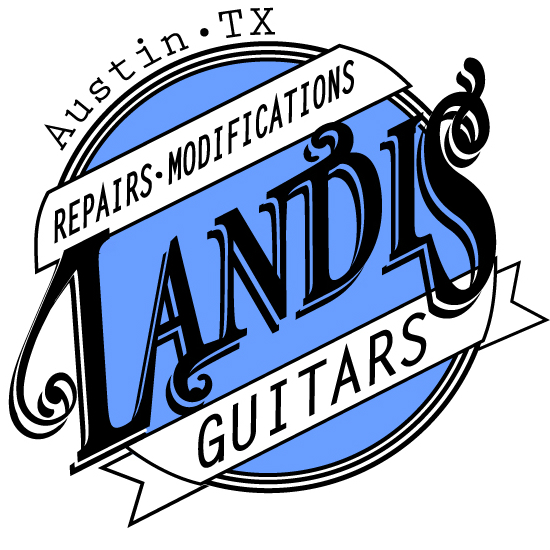What components should you buy?
This is a conversation that lots of people with strong opinions will have… plenty to contribute. Fortunately for me, this is my blog, where my opinion is the only one that matters!
Potentiometers (pots) – CTS are the industry standard for a reason, and they have been making pots forever (all the variations that you’d want for guitar mods included); they are pretty cheap and very reliable, plus you can take them apart and modify them and swap parts, woohoo! Alpha pots are smaller, which can be convenient, but they are also cheaper and less reliable, often scratchy, but they sometimes last for decades without issue, go figure. DiMarzio makes a pretty great pot too, and Bournes push/pull and push/push pots aren’t bad either. You’ll develop your own preferences with time, but start with the basics. CTS life.
Capacitors (caps) – I stock whatever’s cheap, like Xicon, unless I’m doing some kind of vintage rewire, in which case I’ll buy whatever is requested, often Orange Drops, Spragues, Bumblebees, or some fancy paper-in-oil thing. They all—essentially—work the same, so don’t stress too much about the brand and just buy the common values (.022uF and .047uF). This is not to say that the more expensive caps are not worth the investment, they might be! But it’s up to you to determine for yourself.
There are so many caps in the world, and so many different sizes and types: film, electrolytic, tantalum, air, ceramic, paper & oil, and they all work in guitar circuits—to some extent—so don’t stress too much about getting the exact right kind. Remember that they all do the same thing: store charge.
The most relevant use of capacitors in guitar circuits is to take advantage of their charge storage capability and low reactance at high frequencies with regard to alternating current. I know that’s a gnarly sentence, but fear not, for now just keep this in mind: capacitors pass high frequency current and block direct current.
There is one important note, though, about Electrolytic caps, which are able to store more charge than other capacitors. In order to do this, they are directional (polarized, with a positive anode and negative cathode) which means that they have to be installed pointing the right way or they will not function how you intend, in fact, they can even catch fire if not installed properly! Not in your low voltage guitar circuit though, haha!
For most guitar mods, you’ll be using non-directional caps since you won’t really need to use anything over .1uF, which is one ten-millionth of a farad. If this is confusing, don’t worry; the more you go along, the easier it will get. The most important factor to look for is the value, but keep in mind that even caps of the same value can behave slightly differently, and this is why people swear that Orange Drops sound “so much better” than Xicon caps, but with a little experimenting you’ll be able to determine for yourself what sounds best to you, which is how it should be.
Most guitars use film or ceramic caps at .022µF and .047µF, or somewhere near that range. Remember, it’s not an exact science. Well… electrical engineering is very much an exact science, but this is guitar modification, which is a subjective endeavor. Experiment! Listen! Have fun!
Resistors – Measured in Ohms (Ω), they do exactly what they say, which is to resist the flow of electrons in a circuit. These things are dirt cheap online so you may as well get a whole pile of them in as many values as you can find. I’d recommend getting 1% tolerance metal film ones—they’re usually blue, cheap, and generate the least noise of all the common resistant materials—but any kind will work just fine. Most likely, you’ll only be using these for treble bleed mods, but If you insist on getting into HiFi components, try to stick to the science and steer clear of the opinion, especially on forums. Use your own best judgement to make your own decisions, and use your own ears to determine what you hear.
Switches – Switchcraft does a pretty amazing job here, but the best 5-way Strat switch is probably made by CRL. It’s affordable and reliable. Oak Grigsby does some fancy switches if you want to get crazy with a Super Switch or wire up a 4-way tele style switch.
Jacks – Switchcraft, just say it with me… Switchcraft. They are the industry standard in guitar jacks for a reason. What about Neutrik you ask? Ok, yeah they’re pretty good too, if you really want to, go ahead and give them a try. It’s your guitar after all.
And that’s all the basic components, really.


